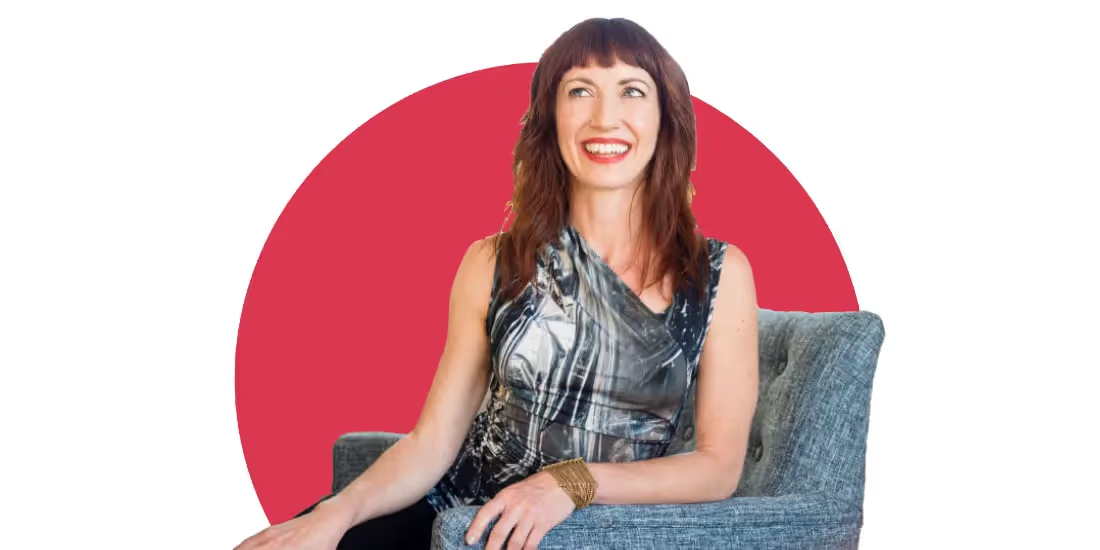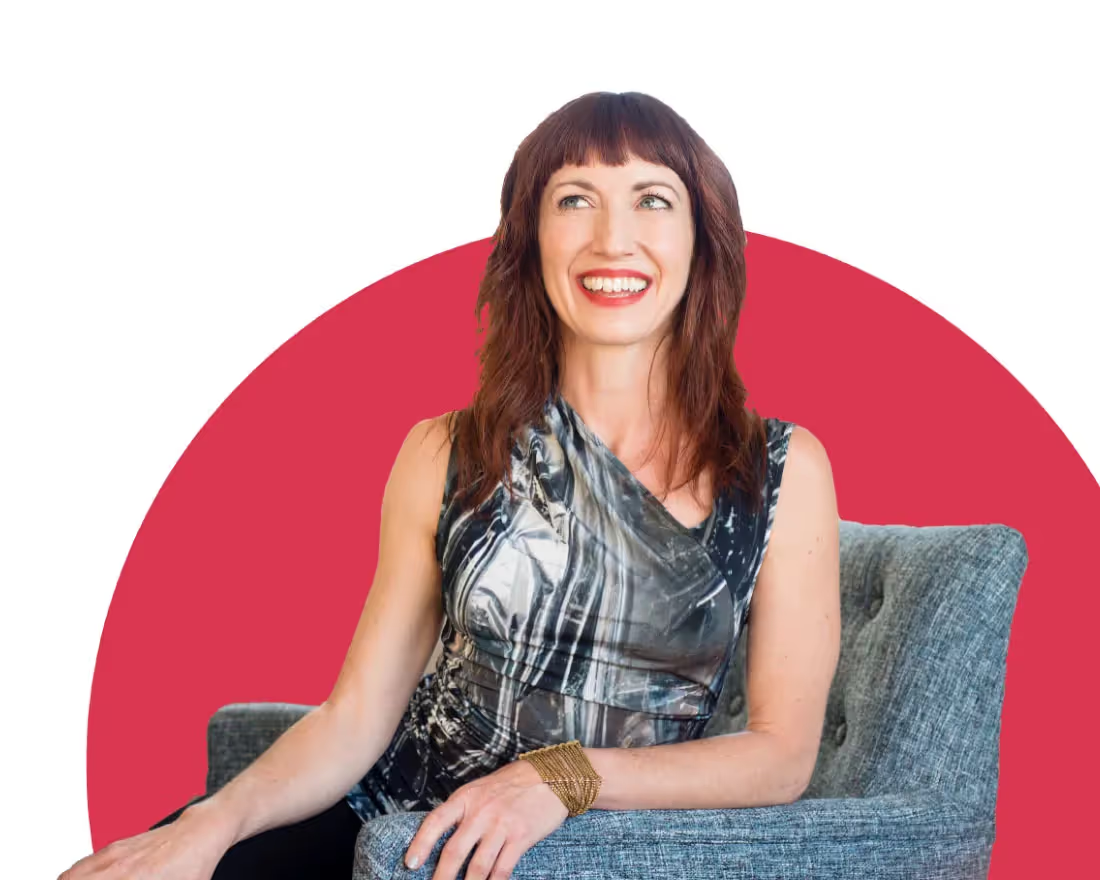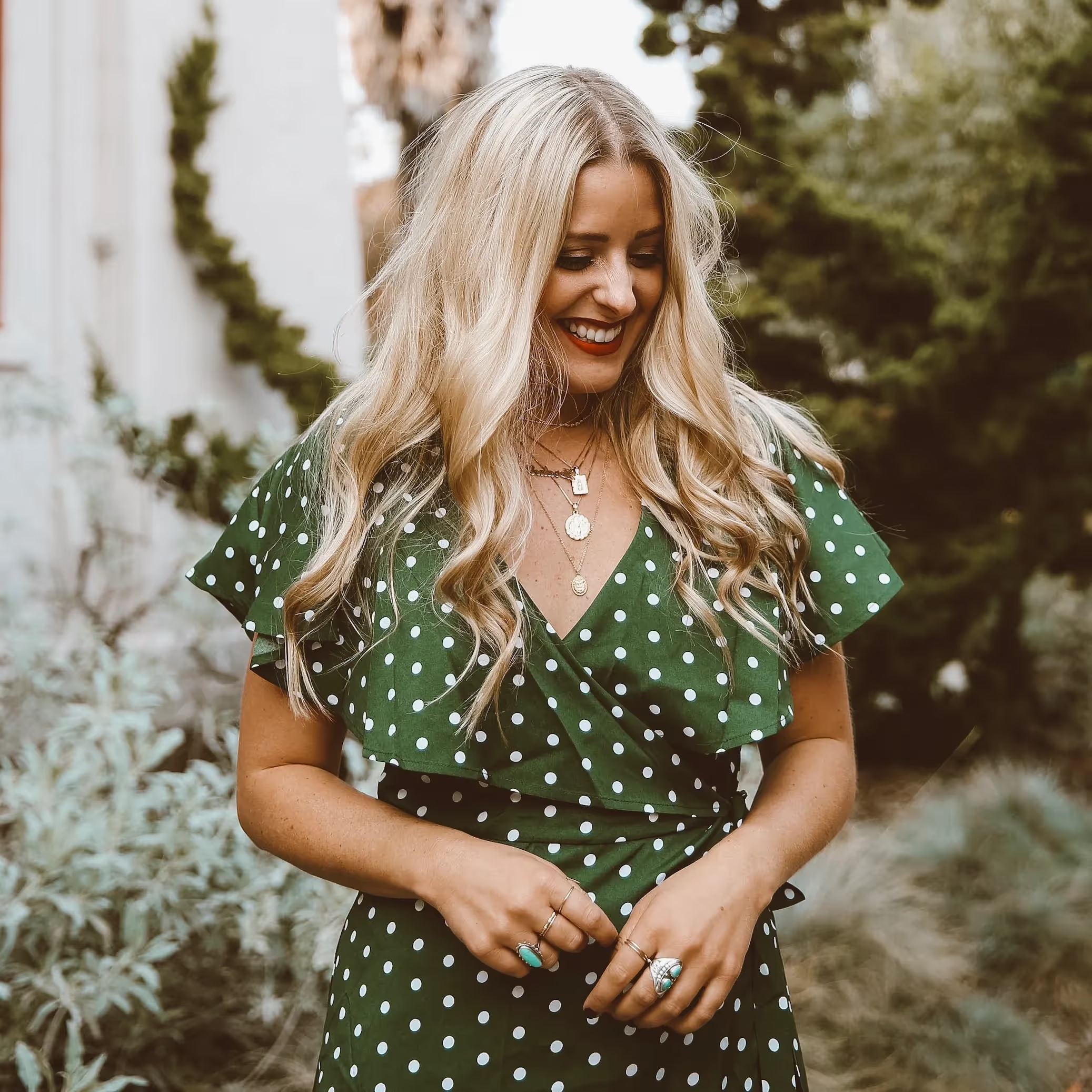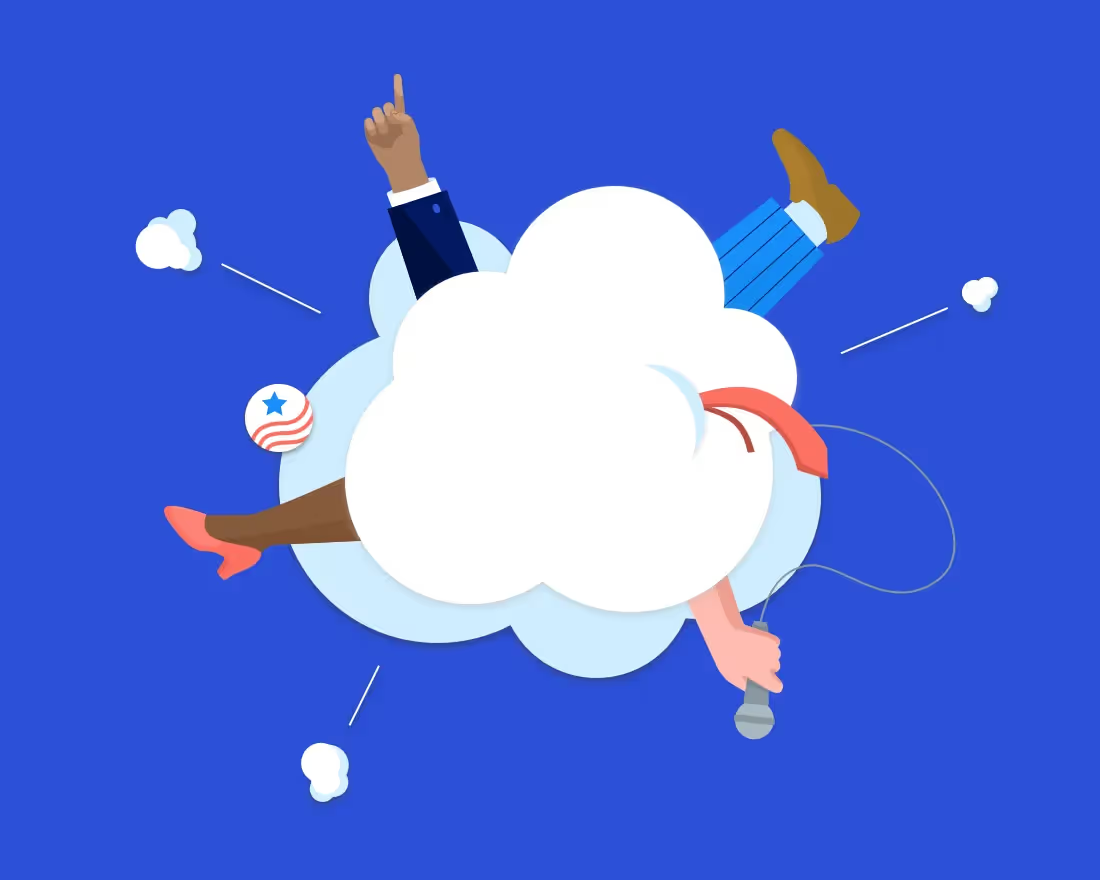
We all have a story to tell in some capacity. Strategic storytelling makes it easier for audiences—big or small—to digest and comprehend the information being presented to them. It’s something that many teams incorporate into their business plans, whether it’s a pitch or a marketing campaign. Being a good storyteller is a skill that many people work towards, yet few achieve on their own.
Experts like story and communications coach, Rebecca Williams, can help people share stories more effectively. Her love for storytelling runs deep. Rebecca’s dad was an opera director, which meant that she spent a lot of time on stages and performing as a kid. That drove her curiosity about expression, and how to communicate and really connect with an audience. After college that curiosity led her to Japan where she devoted her time to teaching English as a second language and coaching her students on how to express themselves authentically. Today, helping people tell their stories is taking the form of helping her clients build and deliver great presentations. Rebecca has been helping people share their genius for over 20 years. As someone who creates anywhere between 85 and 100 slides, 3-4 times a month, she gets it.
We caught up with Rebecca Williams to talk about the importance of presentations, why people fear them, how she helps people nail the delivery, and everything in between.
Why do I think so many people have a fear of presentations?
So many people hate presenting. People are afraid of presentations just like they're afraid of standing on a stage and doing a talk, or giving the eulogy at a funeral. It's really sad, because I see so much fear—fear of expressing yourself, or fear of saying the wrong thing and not getting it right, or fear of just standing in front of a group of people. And why is that? I believe that people are afraid of presentations the same reason why they're afraid of performing. Which is that they're either afraid of really being seen, or they're afraid of somehow being seen and then that's not enough. And what I really try to get across to the people I work with and the people I help is that, being yourself, it is the only choice. Being authentic, and communicating clearly, strongly, and boldly, is really the only choice. And how can we get to that place faster? How can we really come to a place where we feel confident, and we feel able to express our strong message and our wild heart?
What challenges have you seen clients face with presentations?
People struggle a lot with presentations. And it makes my heart hurt. Because presentations for me are really an art form. And I believe that they really deserve our attention because it is a way to communicate one person to many people in a really dynamic way. So of course, when people come to me and they want to work on presentations, they lack confidence. They're afraid that they're not being clear. They're afraid to be authentic. They're afraid to share about themselves. And really those are the things that I'm helping them do. I'm helping them get clear. I'm helping them communicate clearly. And I'm helping them share about their own experience in life, and how they got to where they are through stories. Because I really believe that sharing more about ourselves, and being authentic, and telling stories, is the way that we connect with each other, and the way we can really make the world a better place.
Another problem that clients have with presentations is starting with the slides. They don't take the time to really get clear on what they're trying to say, and how they're going to say it. They just dive into building the slides. I think that’s because they're nervous about it, and because they feel intimidated about that process. But I don't let them work on the slides first. I make them get really clear on the message they're trying to convey before they work on any of the visuals at all.
Which part of the presentation process do your clients struggle with most?
My clients struggle the most with really getting a clear and concise, controlling idea for their presentation. If you're not sure what a controlling idea is, it just means what are you trying to say? What's your message? It's surprising how hard it is for people to really narrow it down. I'll often ask people I work with to come up with a controlling idea that is roughly five words. And I always get 2-4 sentences.
One of my favorite quotes is, “the more you say, the less they remember.” And it's true. If you can't get your controlling idea down to a really memorable, concise, tight message, then you're going to struggle to create a presentation that really lands with people, and one that they can really understand, grasp, and remember.
What problem are you solving for your clients?
People come to me, and they're generally unclear about something. They're either unclear about their business message, the problem they're solving for other people, how they're different from the competition, or they're unclear about what their genius is, and how they're articulating that for the world. So they come to me. And I help them get clear on their story. Who are you? What are you bringing to the world? How is it different? And how can we magnify that so that people really see that?
Why are presentations important?
Presentations are important because they force us to be concise, and they force us to get to a clear idea and then share it in a way that people can grasp, and can be engaged by. So often I see people trying to communicate something, but they use too many words, or they're not direct, or they don't quite say something strong enough and it loses its effectiveness. Presentations are really an opportunity for us to be clear, and be direct, and communicate in a more effective way. And with engaging visuals you can touch many of the senses, which allows people to remember what is important to us, what's close to our heart.
What outcome are you trying to achieve?
How much rides on the success of the presentation? Every presentation has a different desired result. Some presentations are to teach, some are to sell, and some presentations are to help the client understand where we're going with something, so in other words, to get buy-in from that client. So with every presentation, there's a little bit of a different goal. And we need to be really clear on that goal, so we can build the presentation to meet it.
How are remote presentations different from in-person presentations?
Are there special skills you need for remote presentations or things you need to be more aware of when running a remote presentation?
What role does design play in presentations?
Design plays a huge role in presentations. I can't emphasize enough how the slides that you're using are a component to what you're saying. They really need to go hand in hand, both with the timing and with the visuals for what you're saying. They can't be distracting. They can't be overpowering. They need to compliment your message and what you're saying.
Why is a visually appealing presentation important?
Well, a visually appealing presentation is important because it gives you credibility. It’s important because you want to give people in the audience something beautiful to look at. It goes part and parcel with how you look, what you're wearing, and how you present yourself. Everything means something. You are on a stage, and that stage is both you and it is your slides in the background. So it's paramount to have really beautiful slides that help convey your message.
As an expert storyteller, what do you look for in a presentation tool?
I look for ease of use in a presentation tool. And I look for ways that the presentation tool doesn't get in my way. I like things to be really simple, and really clear, and really beautiful. Most presentation tools that I found have too many things in the way, and they clutter the space, so they don't help communicate a clear message.
How did you discover Beautiful.ai and what did you like about the tool?
I found out about Beautiful.ai from a friend who recommended it. Beautiful.ai was so easy to use. The first time I used it was for a client brand presentation. I didn't have a ton of time to actually build the slides themselves, and I wanted to try beautiful.ai because I had heard it was a great tool. Within a very short amount of time, I was able to create a beautiful slide deck that was both visually appealing, and really powerful. And it helped me drive my message home.
I recommend it for anyone who struggles with that side of design. Because we all know how long that can take. And if you haven't been to design school, or even if you have, you don't really want to spend your time doing that. You want to spend more time on the message you're communicating.
Tell us about your virtual presentation skills bootcamp.
Join Rebecca Williams at her Virtual Presentation Skills Bootcamp, and take your presentation skills to the next level so you can grow your career, or your business, and have more fun communicating what matters to you. To sign up for Rebecca Williams’s bootcamp, visit her website, rebecca-williams.com, or click here.
Read more customer success stories and case studies here.






.avif)

